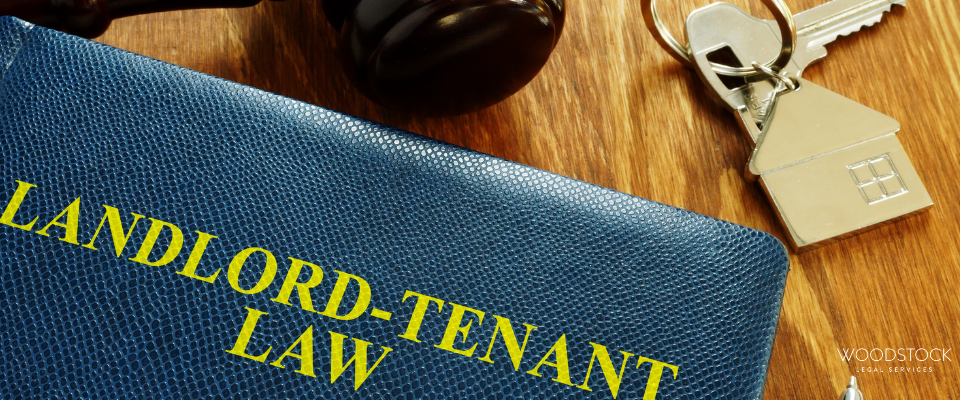How to Sell Smarter: A Conveyancer’s Guide for Property Sellers

Selling your home is exciting, but the conveyancing process can sometimes feel like it drags on longer than you expect. If you’re wondering how to speed things up and avoid frustrating delays, you’re not alone.
In this insight, Charlotte O’Driscoll, an experienced conveyancer at Woodstock Legal Services, shares her advice on how sellers can help keep things moving. While the legal side of selling a home can sometimes feel slow or complicated, there are things you can do to speed up the process and avoid common delays.
From preparing paperwork early to understanding what your conveyancer needs from you (and when), Charlotte walks through the key stages of a smooth sale and what makes the difference between a straightforward move and a stressful one.
Get the Conveyancing Process Started Quickly
As soon as you accept an offer, it’s important to appoint a conveyancer who can begin the legal work without hesitation. Early instruction allows your conveyancer to open your file, carry out the mandatory identity verification checks, and send you essential documents. Completing these forms accurately and returning them promptly helps your conveyancer prepare the contract pack without unnecessary delays.
Additionally, gathering important paperwork like planning permissions, building guarantees, or certificates related to any renovations or improvements will ensure your conveyancer has everything they need to progress your sale smoothly. The quicker you get these steps done, the faster your conveyancer can move your transaction forward.
Preparing Contract Packs
Once you’ve completed the initial paperwork, your conveyancer will begin drafting the contract and compiling the contract pack to send to the buyer’s solicitor. This pack includes important details about the property, your completed forms, and the official title documents.
To avoid delays at this stage, it’s essential to provide thorough and accurate answers on all the required forms. Make sure you also share any relevant documents as early as possible - especially those relating to property alterations, planning permissions, or building regulation approvals. If there are any known issues, such as boundary questions, ongoing disputes, or anything else that might affect the buyer’s understanding of the property, it’s best to disclose these upfront.
Being transparent from the outset helps to reduce back-and-forth between solicitors and keeps your sale progressing smoothly.
Enquiry Responses
After the buyer’s solicitor reviews the contract pack, they will often send enquiries such as follow-up questions about the property or the information provided. This is a normal part of the process, but it can cause delays if not handled quickly.
To keep things moving, it’s important to respond promptly and clearly when your conveyancer asks for your input.
Having relevant documents ready, such as certificates for gas safety, electrical work, or building regulation approvals, will help you provide accurate answers without delay. If you’re unsure about any inquiry, don’t hesitate to ask your conveyancer for guidance as they can help you provide the right information and avoid unnecessary back-and-forth with the buyer’s solicitor.
Get Financial Details Sorted Early
One common cause of delay in the conveyancing process is uncertainty around finances. Your conveyancer will need to obtain mortgage redemption figures from your lender. They will also prepare a completion statement outlining all costs involved, including estate agent fees and the final proceeds you’ll receive from the sale.
To speed things up, make sure you inform your conveyancer who your mortgage lender is and authorise them to request these figures early in the process. Additionally, keep your estate agent informed about the conveyancer handling your sale so their invoice can be sent promptly.
If you’re also buying a property at the same time, coordinating both sales early can prevent unnecessary delays and help align completion dates.
To get a better understanding of the financial aspects involved in selling and buying property, including tax considerations, visit
GOV.UK’s guide to Stamp Duty Land Tax.
Agree on Timelines and Exchange Contracts
Once all enquiries have been answered and financial details finalised, your conveyancer will prepare the contract for you to sign and arrange the exchange of contracts with the buyer’s solicitor. Exchanging contracts is a crucial step because it makes the sale legally binding and sets a fixed completion date.
To keep the process moving smoothly, it’s important to agree on realistic timelines with all parties involved - including your conveyancer, the buyer’s solicitor, and your estate agent. Be available to sign your contract promptly when your conveyancer requests it, and communicate any changes or concerns immediately.
Clear, timely communication at this stage helps prevent last-minute delays and keeps the sale on track.
Prepare for Completion Day
Completion day is when the sale officially finishes - the buyer’s funds are transferred, your mortgage is paid off, the estate agent is paid, and the keys change hands. This day can feel hectic, but with good preparation, it can go smoothly.
Make sure your bank details are up to date with your conveyancer so funds reach you without delay. Stay reachable in case your conveyancer needs to confirm anything last minute. Also, plan your move in advance so you’re ready to hand over the property once the sale completes. With these simple steps, completion day will be much less stressful and much more efficient.
How You Can Help Keep Things Moving
While your conveyancer handles the legal work, your active participation plays a huge role in speeding up the process.
Here’s how you can help:
- Be prompt and responsive: Reply to your conveyancer’s requests quickly and provide any documents they need without delay.
- Communicate your timelines: If you have specific dates or deadlines, share them early with your conveyancer and estate agent to manage expectations.
- Ask questions: If you don’t understand something, don’t hesitate to ask your conveyancer for clarification - they’re there to help.
- Choose the right conveyancer:
Remember, the cheapest option isn’t always the best. A conveyancer who offers personal, attentive service can keep your sale moving smoothly.
By staying engaged and proactive, you can help avoid common delays and make the whole process easier for everyone involved.
Selling a property can feel complicated, but understanding the process and working closely with your conveyancer can make all the difference.
At Woodstock Legal Services, our conveyancing team prioritises clear communication and personal service - so you’re never left in the dark.
If you’re looking for practical, no-nonsense Conveyancing advice, get in touch with Charlotte O'Driscoll, Chartered Licensed Conveyancer, at c.odriscoll@woodstocklegalservices.co.uk or fill out the form below.
Contact Us
News & Insights











